The Bones of a Dark Age Academy
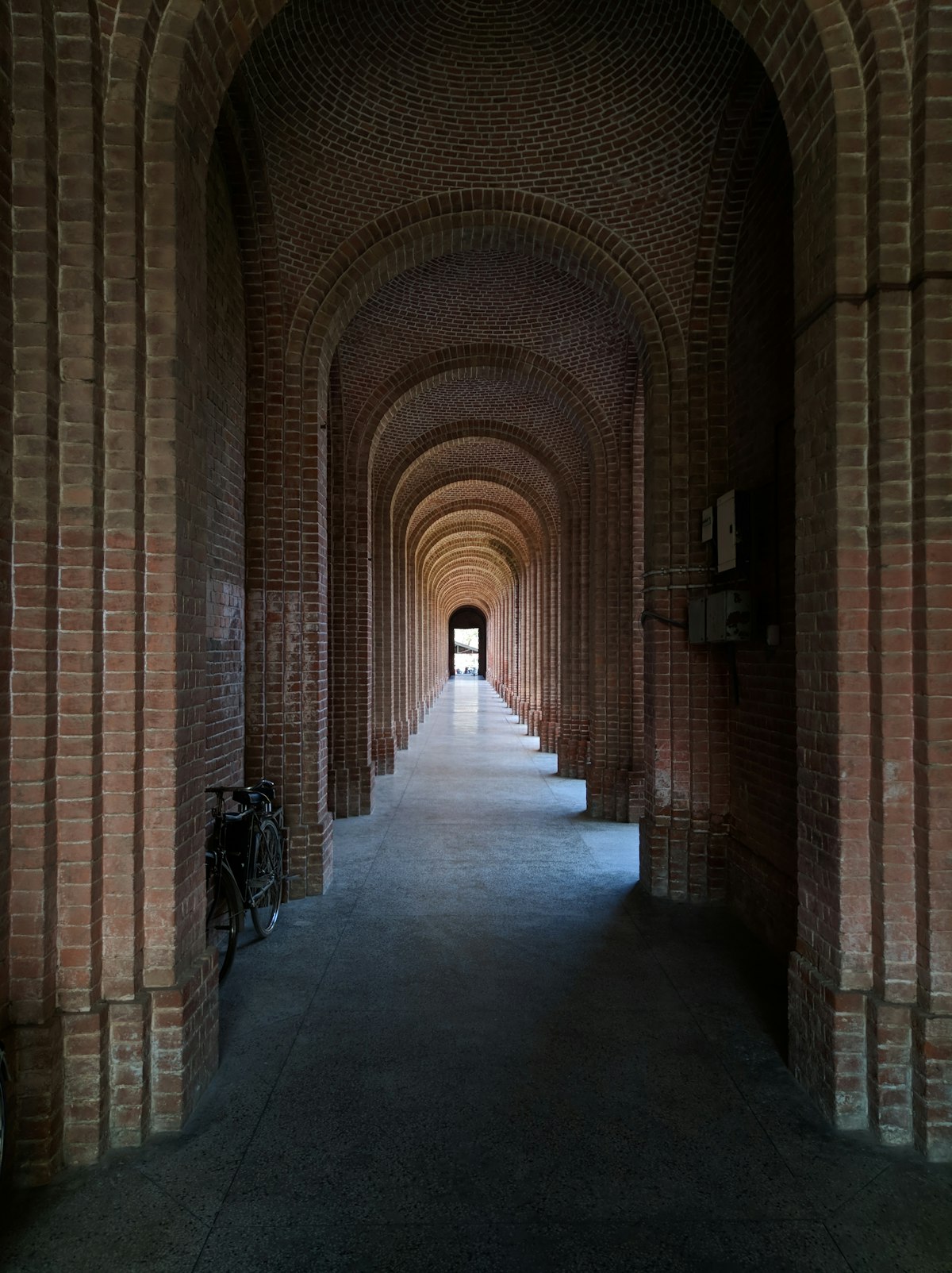
An outline for restoration in the detritus of the old world
The Trap of the Tragic Style
Writers often receive questions they hate to answer. Unsurprisingly, those questions are the ones readers most commonly ask. The questions are not illegitimate or impossible to answer, it's just that they tug on a reality that can't be easily encapsulated into a tidy response. And the readers who ask these questions are sincerely pursuing their curiosity, and are hard to dismiss. I can think of more than a few irritating questions that I frequently encounter, but most of all, there is a certain hard inquiry that I call "the request for optimism". It sounds something like this:
Dave, with all of the bad things going on, don't you have anything optimistic to give the audience? We need something to look forward to and to hope for! We need "White Pills"!
The question is sincere. But I still hate it because of how I am forced to answer it. There are only two ways to respond and each feels cheap and reminiscent of a type of grifting.
The first option, predictably, is just to give the people what they want. People want optimism. They don't even care if it's true. It might be nothing but pretty words and Pollyanna-style flattery, but people can never get enough of it. Here, I can't help but think of the career of Dr. Steve Turley who somehow, after the better part of a decade preaching optimism in the face of continuing defeat, still manages to maintain a fanatic fanbase. In Turley World, every day is the day of “total conservative victory”, the turning point where the Democrat Party and the progressive mainstream crumble, where the ascendency of populism becomes inevitable. Turley can't stop winning and he keeps winning, every single day as the conservative movement he represents crumbles. Still, the good Doctor's fans always return. Optimism, even the futile kind, is very good business.
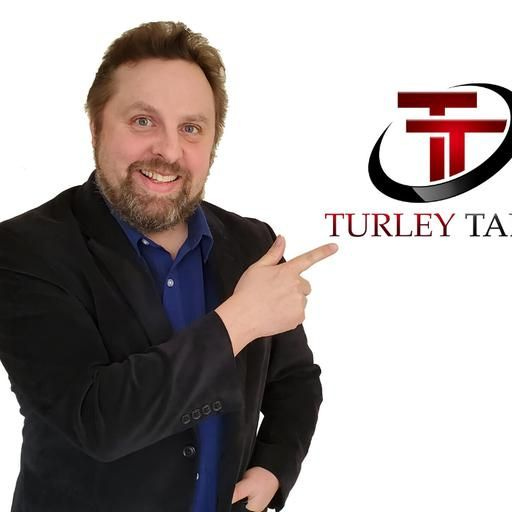
But selling false hope has never really been my thing. So I am inevitably drawn to an alternative response to the "request for optimism" that could be called the "tragic style". It sounds something like the following.
Listen, these are hard times. But remember that no regime is forever. Even as we continue to lose, our enemies' decline is faster than our own. And most of all, we have God on our side, who reigns eternally and to whom we owe ultimate trust.
I believe this is the correct response. It hits on all the right points. It outlines the right general direction for right-wing disposition. And, fundamentally, I believe it to be true. But I still hate reciting it to readers because it echoes the bland and meaningless platitudes of the old gelded conservative movement, a type of self-pitying sophism that once entrapped me.
I am somewhat embarrassed to admit it, but much of my career in blogging is formed by a desire to avoid being like the conservatives who once were so influential on my intellectual development. I know that being a natural pessimist, I was always going to be an ideal target for the conservative brand. And I don't consider my pessimism an altogether bad thing. It has served me well in the past. Pessimism drew me away from many of the false idols that entrapped my peers. Pessimism was the rock in my boot that kept me from sliding into comfortable complacency. Pessimism was one of the first reasons that I started looking for more elevated things, not initially from a genuine spiritual desire, but because I could feel the earth sliding away beneath my feet and it felt like time to seek out higher ground.
But pessimism traps one’s thinking in a mode of indolent defeatism, more wallowing than realistic, dripping with excuses to retreat into maudlin self-pity and functional indifference. And, in 2023, is there anything that better characterizes mainstream conservative thought? For all their references to Roger Scruton and Russel Kirk, the main product of modern conservatism seems to be a type of learned helplessness that seeks to disguise itself behind wistful words and the romantic idea that you are going to be the witness to your own civilization’s destruction, with little more to offer the next generation than the words spoken in irony, "I told you so".
For myself, few people represent this mode more than Rod Dreher, a man seminal in my conversion to Christianity and turn away from progressivism. During 2023, Dreher has strangely become a joke in virtually all political circles, left or right. This is due to the author's recent tendency to fall into bouts of self-destructive histrionics, and imprudent attacks on other right-wingers. But more fundamentally, the problem of Dreher runs to the core of the image he presented to the world in his early work which was so formative for my thinking.
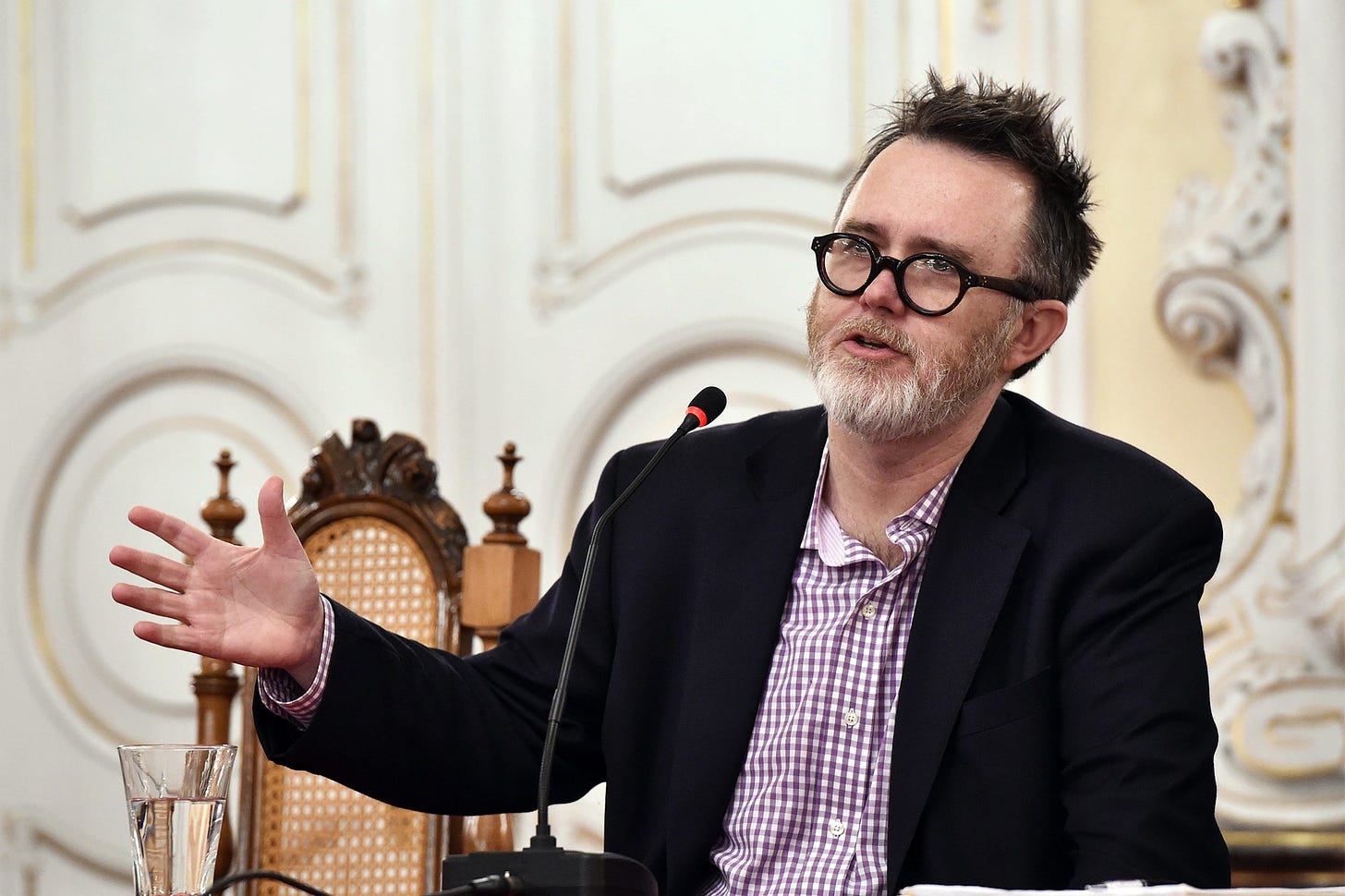
Rod Dreher was the master of writing within a certain idiom that I have termed "Heroic Hysteria". In this style, the author starts by complementing the latest culture war outrage with refreshingly sober observations on the sorry state of society, then builds emotion by exposing the core contradictions in modernity, before concluding that Christians need to "take things more seriously", "read the signs of the time", and "prepare for what's coming". As expected, when asked for solutions, Dreher would provide a response identical to my “tragic-style” answer, telling people to look to God, build their communities, and seek restoration in some horizon after a broader collapse.
But short of something that the reader could see now, how useful were any of these sentiments?
Implicit in Rod Dreher's writing and world-view was the notion that the pearl-clutching outrage and windy platitudes contained in every article were an encouragement to "get building", a stone in our boot that would warn us from complacency, and a reason to take the hard action towards improvement. But that was just the problem. How would we even start this process of local restoration that Rod alluded to? How could you build the Benedict Option? There was never an answer to that question. The implication always seemed to be that Dreher was building behind the scenes, developing deep bonds and a tightly-knit community that would be an example for others.
But, as the Rod Dreher saga progressed this pretense rapidly dried up and blew away. It would seem that Rod's local and familial bonds were disintegrating faster than society itself. I know that personal life should not bear on a thinker's larger ideas, but what to make of a situation where an author appeared to be sabotaging the very foundations in his own life that he was asking his audience to build in theirs? And the situation was rendered even more ironic in the early 2020s, as the comfortable family and community situation Rod easily slid into, decades earlier, became ever inaccessible for younger men looking to follow in his footsteps.
To this day Rod Dreher continues in the mode of his previous writing, but I can't imagine who reads it. His entire approach is futile. Young men need something more than vague moralism. After all, what good is outrage outside of actual results, real or spiritual? I don't want to participate in a beautiful tragedy for someone else's catharsis. I don't want to bow before the idol of a crumbling old order. I want to live. And if to die, I want to die for a living God. Oswald Spengler famously said that optimism is cowardice. There is some truth to that. But despair is a cop-out, a comfortable way to remain aloof and uninvolved from the imminent struggles of one's time, a way to retreat from the world and transform life into a masochistic entertainment product.
And the temptation is insidious, because "Heroic Hysteria" can be quite seductive for writers. And those of us with conservative tendencies must constantly kill our inner Rod Dreher if we want to avoid the cul-de-sac of futile outrage. We have to come up with better answers for seekers looking for something with which to confront modernity. We have to be able to point to real projects, new green shoots, and opportunities for action, not simply spiritual hand-waving and windy platitudes.
A lot of people are thinking about practical parallelism leading up to 2024, and, as such, there has been a lot of great writing concerning the frontiers of dissident community building. For the interested reader, I would certainly recommend the recent essay from Kruptos, Building a Parallel Polity, which broadly outlines the essential concepts and priorities that would be needed for dissident community expansion, taking the next steps based on what has already been done, and notably emphasizing concepts of space, cultural illegibility, and intentional use of technology as the cornerstone of new efforts. The essay was phenomenal and I urge my audience to read it for themselves. Still, I couldn’t help noticing how differently I conceive of the problem of constructing future communities.
Perhaps it’s not a bad idea to try my hand at a common subject. I might approach the issue less procedurally than conceptually, like an engineer trying to find a vision to outline growth in stages, building up from the understanding of the problem, to the concept of a solution, to the real places where solutions might be applied.
The Dark Age Academy
The first question for any aspiring builder is always “What should be built?”. Given how much I hear people talking about making things, it’s odd how infrequently I hear answers to this question discussed. After all, you can't just start moving in a random direction. Perhaps people are satisfied with reactionary candle-making, traditionalist TTRPG groups, or right-wing sewing circles. And to a degree this is valuable. There is a case for having community just to have community even if organized around a silly objective, hence the name "basket-weaving". But there has to be something aspirational driving the effort. There needs to exist in a community the imperative to find something generative, lasting, and life-giving.
Typically, the things modern non-progressives attempt to build are replacements for the comfortable things they remember from the before times, the elements of previous iterations of liberal modern life that just worked but which have now been dissolved by progress in its present form. After all, don’t you remember good movies? Exciting comic books? Geek Culture that didn’t suck? A comfortable middle-class consumer lifestyle not hobbled by the ravages of globalist economics and stifling social control? Why not try to get back what they took from you? It's time to do it yourself just like you remember it.
Well, not so fast.
We are all children of the modern era, with preferences and habits formed by our age, and, whether we like it or not, we can’t help but be defined in part by the things that we consume. Independence is important in the things that we buy and use daily. But the D.I.Y. attitude of most anti-progressive entertainment and media projects can seduce us into a futile endeavor, trying to maintain the lifestyle of summer in the last days of autumn.
We can't be the restorationists of The Fresh Prince of Bell Air. The 20th century is not coming back. Modernity is not rolling up into a ball, and any movement to "put the woke away" will be purely symbolic, a sedative to get the Boomers to go back to sleep while the deep poison does its wicked work.
As such, there is no meaningful effort to engage in entertainment, art, or engineering outside a larger teleological drive that seeks to address the problems we confront in the early 21st century. Regardless of whether you start in a mode of familiarity, the aspiration must always be to shine a light into this new darker age. We have to be on guard against complacency. Whether writing a comic book or organizing a political party, builders must overcome the perpetual temptation to backslide and lose sight of the ultimate goal, which is always to confront and contest the harmful qualities of the modern world.
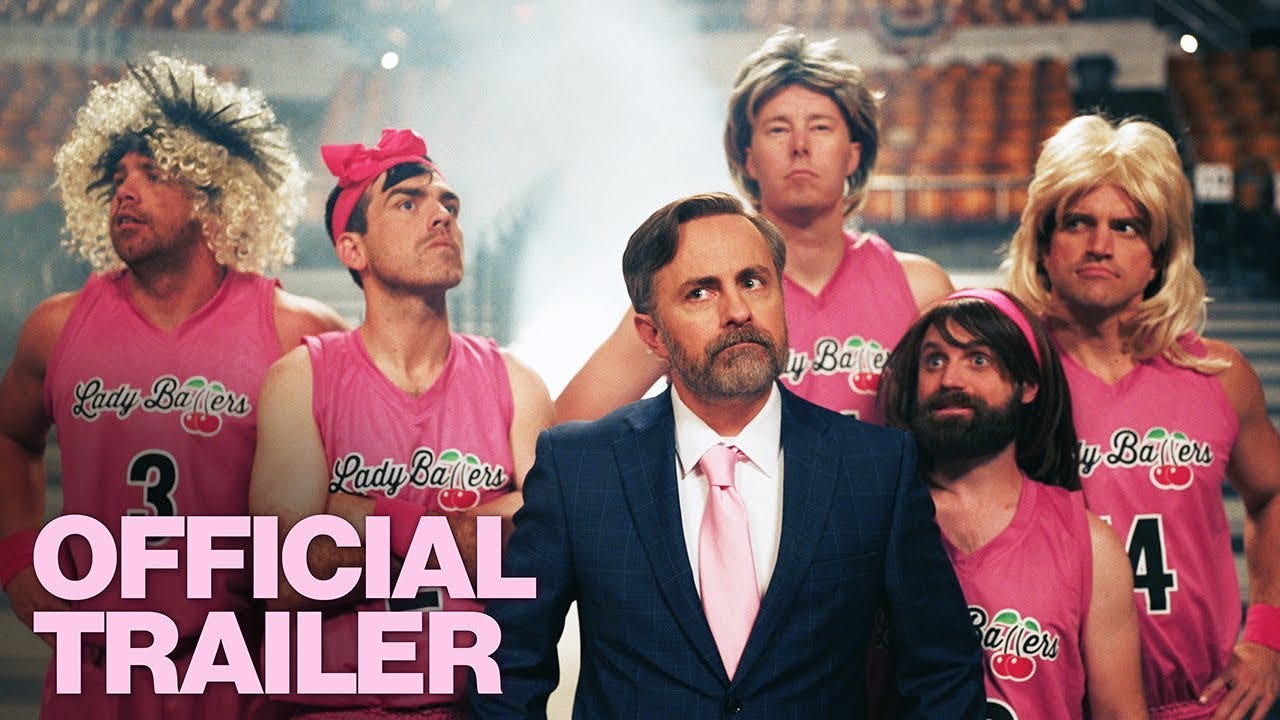
The great poison of the right-wing imagination is nostalgia, a quality infesting every corner of the mainstream conservative movement. It’s hard to escape. Whether it is the Daily Wire's attempt to rebuild the Hollywood of 2003, the barstool conservatives’ effort to pass off softcore kitsch as some assertion of masculine virility, or the reselling of stale South Park jokes as cutting-edge comedy, the spirit of the past weighs conservative counter-culture down, transforming its effort into a conveyor belt of schlocky knock-offs completely unsuited for our time.
And one sees this style of political nostalgia even in well-considered conservative political projects. Here I consider Chris Rufo’s crusade against the Woke University system.
I respect Rufo's work as an activist, and it should be said that he is one of the few conservatives who has taken the time to understand deeper right-wing theory. I also understand that, when an intelligent and deft operator is working his magic, it’s often the better part of wisdom for critics like myself to stand back and “let the man cook” (as the Zoomers say). Still, I find it hard not to notice many shortcomings in his recent approaches to ending “wokeness” in the academy. Because, short of Rufo’s actions being part of a larger 4-Dimensional chess move designed to funnel money into an entirely new system, it’s hard to not feel that these recent tactical approaches carry with them a certain tiredness, reminiscent of the efforts I saw coming out of the old guard conservative movement and the California Republican Party, circa 1996.
Are we still here in 2023 calling for free speech and intellectual diversity? Are we really trying to expose the anti-White, anti-civilizational anti-colonial left like it is some kind of scandal? Are we still acting surprised about plagiarism and academic standards? The entire exercise feels like it just hoped out of a DeLorean rocketed in from the 1990s accompanied by a shocked California Republican with frizzy white hair exclaiming "Something has got to be done about these crazy PC liberal Universities!”
For those neophytes, a reminder. In 2023, no one cares about fairness, free speech, or “the marketplace of ideas”. Anti-colonial, anti-white, identity politics are a feature of the modern university system, not a bug. They are a core part of the higher education business model which seeks to extract wealth and power from the American public. Furthermore, prestige schools like Harvard don’t care about plagiarism when it exists among political appointees. These institutions write Academic standards and arbitrate them. Trying to hold the Ivy League to account for academic integrity is like thinking that the Federal Reserve has to pay back its debt when it draws its bills straight from the U.S. Mint.

And Rufo’s efforts aren’t completely wrong-headed. He has his guns facing in the right direction. Rufo understands that the University system is, in fact, the core of our problem. And if this academic system were to collapse, so too would the progressive managerial class that rules globally.
Perhaps this is enough reason to pour gasoline onto the bonfire of modern academic credibility. It was already burning itself out before, and I guess it’s good that it is now burning faster. But really, the essential insight that a dissident must notice is not the modern University's problems, but the essential function that it once served.
And here we might find an answer to our original question concerning what to build.
If our modern crisis is indeed a crisis of belief, the next logical step is to understand that belief itself, collectively speaking, is not a spontaneous motion of the human intellect but is cultivated by certain select institutions. After all, while human beings are fundamentally religious creatures, they can't themselves develop proper religious practices.
People need spiritual patterns to order their lives, they require an assurance of absolute good to direct their efforts, and they only thrive when they have contact with Beauty and Truth to give their existence meaning. Nevertheless, most people aren't attracted to these things via their ordinary appetites. What are they attracted to? Power, prestige, romance, and pretty things. I certainly don't blame people for these proclivities, it makes them more human, but a certain collective operation is needed to occur for a healthy human society to persist.
Goodness needs to be taught to the young and preached to the old. Truth needs to be enthroned as an objective of near-divine preeminence. Prestige must be granted to excellence. Trust must be purchased with humility and sincerity. And the sacred nature of humanity's collective purpose must be clothed in robes of power and majesty. This overall objective must naturally be accomplished collectively and inter-generationally, or, as we might otherwise say, institutionally. But what would we call an institution that performs this function?
In any pre-Reformation time, we might call such an institution a church. In modernity, we call it a University. What else would you expect from a fundamentally Protestant civilization like our own? Once we believe that communion with the Eternal Word is reached through the reason of the mature human conscience, what is left but to consecrate the location where that conscience is formed? Whether it is lecture hall or courtyard, the dusty library books, or dreaming spires, the site of a Christian college is nothing less than a monstrance, a new arc of the covenant so naturally marked as a site of power, beauty, and mystery.
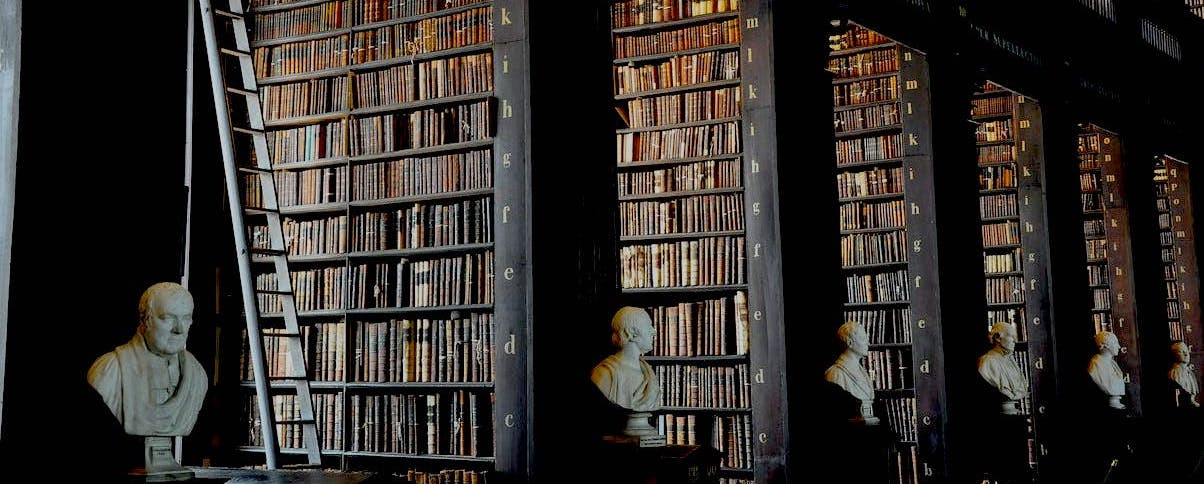
This spiritual identity of the University is also echoed in the recent online aesthetic, "Dark Academia", recently explored by Johann Kurtz in his article on the topic. As Johann describes:
''Dark Academia is an aesthetic subculture that presents an idealized, romantic vision of Collegiate Gothic architecture and pale, English Rose students. It is nostalgic, autumnal, dark, seductive, shadowy; purged of technology, it implies a pessimistic and melancholic grieving for a forgotten society.''
Without paraphrasing too broadly, Johann deftly notes the irony in the endeavor where leftist artists essentially reconstruct, in fantasy, the exact elements of classic culture that their progressive value system declares anathema, and consciously purges from the reality of modern life. Inside the “Dark Academia” the elements of the old world still thrive: authority, mystery, unchosen obligation, and real truth, and as such a shadow of the old pre-progressive world can be experienced, with all of its manifest meaning intact.
If I had one criticism of the article, it's that the author understates the brilliance of his observations. What Johann has laid bare is not merely a strange aesthetic contradiction in modern progressives, but the core of what the university is, and why it has become corrupted in the modern age.
Whether it was the stern strictures and harsh standards of professors, the discipline of rules you didn't choose, the requirements to learn arcane principles and languages without understanding their immediate utility, or just the aesthetics of the buildings constructed through the work of many generations, there was an essentially spiritual quality to the old academy. It was a religious endeavor, and without that dimension, nothing else about it made sense.
For all the complaints about the modern university, did anyone ever wonder why the thing once worked? Why did we regard academics with such reverence? Why then, in turn, did academics revere truth? Why was there such a worshipful attitude towards "publishing" something, putting the written idea into a word? And subsequently, why was there such a demand that those words contain truth, even when so infrequently read or used for anything that had an impact on the real world? From whence comes the adulation of discipline? the abhorrence of plagiarism? Even the fascination with books?
The old academy was designed to do nothing less than facilitate man's communion with God, and only in this process did its activities become coherent.
This notion of the academy as fundamentally religious also provides a clear explanation of why the universities became corrupt, post-modernity, and why they cannot be easily reformed. What killed the universities was the death of God, or as I wrote in a previous article about the academy several months ago.
In our age, in our special civilizational epoch, being an honest institutionally affiliated academic is impossible. And the problem lies less with particular issues in leftism than in our modern relationship to knowledge and ideas.
Once the death of God has been sincerely proclaimed, once the world is “disenchanted”, once our leaders believe there is no greater source of truth or goodness that binds them to the pursuit of either, then the relationship between man, power, and inquiry changes fundamentally. Revolutionary and political values will eclipse spiritual and religious ones. The managerial imperatives will become crudely utilitarian, and the use of adversarial debate to test ideas will be subsumed by the need to achieve rank political ends.
Despite what liberal pronouncements institutions make at their outset, without a higher commitment to some spiritual ethos, the managerial perspective will always become enthralled by politicized ideology, killing off inquiry in the name of activism and expediency, which is to say, killing truth in the name of power. Because in the absence of God, in the absence of any telos, power is all that remains as a justifying force for inquiry and argument, no matter how many beautiful progressive sounding words we use to describe its conclusions.
What is the University without God? Nothing more than a bunch of grasping bureaucrats and half-fraudulent research pursuits, ready to defraud and destroy the American middle class in the name of its own vanity. People say that universities were corrupted when they got “woke”. But this is fundamentally backward. The universities created “woke” to cover up their corruption. They became corrupted when they lost their core spiritual mission, their connection to God.
But corrupt or not, the University is still the religious foundation of our age and cannot therefore be regulated like a utility company.
This is why all campaigns to incrementally reform the university, as Rufo is attempting, will fail. You can’t regulate a university without destroying it. First, there is the simple managerial problem of trying to manage a managerial bureaucracy, harder yet, a bureaucracy self-righteously convinced of its own moral superiority. To regulate the DEI out of the Universities you would need a bureaucracy of professionals of equal or greater size than the staff of the University itself, and better funded. That's not an easy place to start.
But, the problem is worse. The University, after all, is the societally acknowledged moral consensus of experts. To what truth-validating system will the regulators appeal when trying to invalidate the bullshit of the mainstream? That's a hard question. And similar problems will also beset attempts to establish alternative, non-corrupted, subsidiary academic institutions. Once the thought leaders of that alternative system consign themselves to meeting mainstream standards the game is over. Faculty and staff will inevitably be incentivized to subvert the values of the new institution to obtain career advancement in the larger, better-funded, mainstream.
What everyone wishes is that there was some incorruptible University standing above the corrupted one we currently have. But no such institution exists. After all, if there were a group of experts considered more authoritative than the experts at the University, the University wouldn't exist in the first place. Catholics will know this conundrum well enough whenever the daunting prospect of reforming the church is considered. It's like a person trying to perform a lobotomy on themselves.
But at the heart of the problem, there is some insight into our original question concerning what to build. We need new foundational institutions to facilitate a new spiritual core, a new church in the classic sense, or a new academy in the modern.
How do we build this? It’s tempting to address this question the same way we did with the previous inquiry, by examining the fundamental elements of the Church/Academy and then using its primal components as a basis for reconstruction. But this is a non-starter
The core of true academia, or church, is spiritual vitality, what Ibn Khaldun called Asabiyyah. And this is only produced through hardship and struggle and the great saints and spiritual luminaries that hardship and struggle produce. This is the essence of all religious traditions, not created by man but by history and history’s God. We are not the masters of this Spirit but its subjects. We cannot form It. It forms us.
So, are we therefore stuck once more in the tragic mode with hope locked behind the far horizon of a collapse still to come? Are the children of Winter forced to train their hopes on abstractions outside of their ability to imagine or conceptualize? Is there even a productive action we can take beyond what prayers we might offer up to God to save us?
Certainly, only God can save us. But part of that salvation is looking earnestly at the subtle opportunities that history has granted. And indeed, I believe that providence has left another door open for our generation, a way to begin the great work of finding a new age, in whatever limited way we can.
The Prophet in the Valley
To grasp a vision I return to the book of Ezekiel, and its most famous chapter, the "Valley of Dry Bones" . In the passage, after despairing over the fallen state of his nation, the prophet is transported to a vast valley filled to the brim with human bones. There God promises him a vision of restoration. Not knowing what to make out of the macabre display the prophet despairs until God commands him to speak and order the bones to reassemble. Slowly the bones come together, connecting, growing sinews, muscles, and flesh, but still standing lifeless.
“So I prophesied as I was commanded. And as I was prophesying, there was a noise, a rattling sound, and the bones came together, bone to bone.
I looked, and tendons and flesh appeared on them and skin covered them, but there was no breath in them.”
Then the Lord speaks, the Spirit is summoned and the bodies come to life, a new army, a new nation, a new civilization has been formed from nothing but the dead things discarded by the previous age.
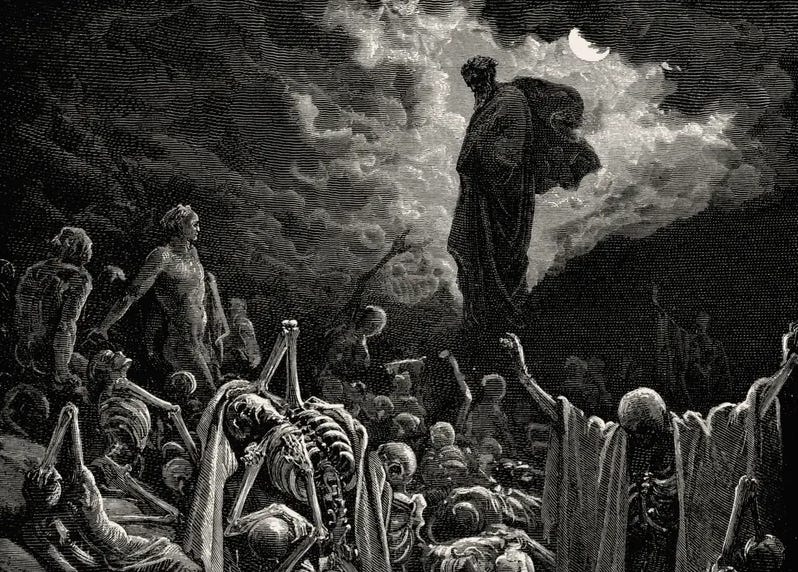
This is one of the more famous chapters of the Hebrew Scriptures, and not just because it is the source of America's most irritating folk ballad. But what does it mean?
Certainly like anything in the sacred text, this passage means more than one thing. It outlines the resurrection of the dead at judgment day, the spiritual restoration of a believer in crisis, but also (most important for our purposes) the rebirth of a civilization spiritually devastated.
God does not restore Israel like a child is born, as a Hindu-like reincarnation. The old soul is not transferred in spirit to an infant. Instead, new life is raised from the dead things that once constituted it, put together backward. The human Ezekiel puts the bones together, and only once assembled does the spirit of God enter to provide essence, and will.
For things created by Divinity or nature, essence always precedes form. God forms the Word, and from the Word proceeds creation. The soul of man is created before the body. The DNA of the seed gives way to the oak tree, a body conceives a baby, life begetting life across the cycle of generations, from heaven to earth.
But those things created by men are different. Like in the dream of Ezekiel, these human acts of artificial procreation proceed backward. Form precedes essence. Creation starts with building the corpus from elements of dead things and then combines them in reverse.
All human artifice, whether of art or society, is a ceremony of hope. We form our machines with technique and intuition from what was left to us. And if the divine spirit favors us, perhaps, the machine spirit will sing, and the thing we have made will come to life just as with Pinocchio or Pygmalion.
I think our efforts must begin likewise. To pick up the abandoned pieces of old things, the “bones” so to speak, and just start using them, connecting them as we can, finding what makes sense until we have constructed the exoskeleton of a civilizational rebirth, perhaps initially without an animating will, but waiting for providence to take the next step and give it life.
Here, like in the case of Ezekiel, the idea is to build the skeleton of the new church as a whole, not simply from the top down, but by gathering all the desiccated bones of the old world, the many myriad institutions from the old order that communicated trust, authority, and moral truth, then bring them together in alliance. Building, not just from the top down, a new Dark Age Academy, a new system of moral authority that operates like a church, awaiting the further animation of a greater religious spirit.
Or, to steal a Boomerism, "build it and they will come". But maybe it's not that simple.
One objection I anticipate is that everything I am describing bears a familiar form, and not in a positive way. After all, where have we heard this all before? What happens when you condemn the innovations of the current age to be evil, when you look backward, try to find vitality in the old things, and persist in building back the old world even though you know the old spirit is dead? Why, this is nothing less than the Ghost Dance! The Boxer Rebellion! The mystery cult of the unknown god. I can hear the push-back already.
Isn't this what you always warn us about, Dave? Politics without spirit? The body without a soul? Repeating things just for the sake of repetition? Cargo Cult civilization? Isn't this exactly the mistake that a thousand restorationist LARPERs make? Isn't this a surefire way to get our allies killed and our society consigned to the dustbin of history? Why would we want to follow the example of the Ghost Dancers?
And I understand this criticism. The shadow of the Ghost Dance still looms large, and self-delusion is a trap. But the first step in avoiding a trap is understanding its existence. And too often people use the example of failure to discard otherwise productive but difficult avenues for advancement.
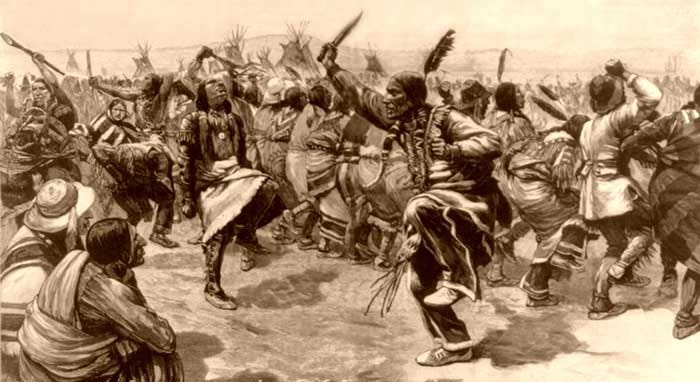
There is a type of reverse survivorship bias that plays out on the internet. We are critically aware of the hopeless cultural revanchists who LARPED in the mode of a dead civilization and then died convincing themselves that their spirit shirts and Kung-Fu spirit would grant them immunity to bullets. We are less aware of the people who picked up the pieces and led their people to survive another day, potentially to recapture their greatness in a different era. All restorations, true or false, must begin by grasping at the straws of hope that are, as yet, unrealized. So everything looks a little like a LARP to begin with. The line between delusion and dream is fine, but it is not invisible.
Certainly, wise endeavors are always marked by an awareness of the world as it is. In contrast, in Ghost dancing, there is always an element of willful self-deception, delusions of grandeur, and a desire to believe that the will of the believer itself is strong enough to bring an end to winter rather than just a natural reaction to circumstance. As always realism and steely-eyed awareness are needed, though there is probably no real guard against this mistake other than vigilance and humility. Nevertheless, I think more focus could be dedicated to ensuring that our undertakings are building towards something other than vanity and illusion. We have to be aware of the things that characterize healthy and meaningful efforts in this direction.
First, Whatever institutions, or "bones", we pick up have to be useful. Perhaps this goes without saying, but institutions, don't exist for their own sake. Each has to serve a purpose that is going to address some concern in the real world, for real people. Men and things are always judged by the fruits they produce in their own time, not by vague promises. And nothing sends a message like actual results: real community, passionate leadership, and thriving families and people.
Second, each bone must fit together. To achieve the purpose of becoming a larger body, each organization must share a common sense of purpose, a common sense of mission, and a common sense of affiliation. The core element that holds the pieces is trust. Trust is the sinews of the “Dark Age Academy”, the currency of any broader organization. As such, the cultivation of trust on both an individual and organizational level must be the central imperative universally, promoting the honorable, rejecting the traitorous, and producing only things and people who represent themselves as they are.
Third, and conversely, suitable "bones" have to be morally separated from the established power. They can't look to the authority of the mainstream academy, press, or government to obtain validation or approval. They can't kneel before the throne of power and still carry out their core mission of being dissident, or even, truly separate. It sounds pretty basic, but it's harder than it looks especially when publicly pronouncing wrong-think becomes increasingly proscribed.
At an organizational level, dissident affiliations will likely be punished. Certainly, in a private sense, it might seem simple to obtain the dissident "ant-smell", just drop an "It's ok to be white" meme or an Auron MacIntrye “sign tap meme” so that we all know that you are on the level. But that's hard for an institution that requires capital to operate. Any one of these signals can be translated into legal actions against their standing and accumulated wealth. For this reason, as Kruptos pointed out, a certain level of illegibility is absolutely essential, coding that exhausts attempts to completely define a dissident for prosecution but still allows members of the group to understand their own.
Lastly, the bones brought together in our new corpus must embody a common aspirational vision for humanity. At this stage, without a unifying spirituality, the vision will be vague. Nevertheless, there must always be an implicit imperative to uplift humanity in our efforts. And I believe concordance around the issue of human uplift naturally develops.
Despite the differences in dissident religious persuasions, we can all observe the manifest decline in societal health, physically, collectively, and spiritually. In all of our endeavors, addressing this issue must be primary. We are not in the business of building civilization or technology for its own sake. We are not in the business of making better machines or more money. We are in the business of making better humans. We want men and women to be stronger, wiser, and more virtuous than they would be otherwise.
This last point brings all the rest of the points together back to the central mission of the Dark Age Academy; we are here to create a network of trust for the betterment of humanity because the old ones have been corrupted.
It doesn't get simpler than that.
The Dry Bones
Perhaps my readers are following me so far on this journey to escape the "tragic style" and the dregs of Rod-Dreherism. However, I would not blame my audience for feeling that I have deviated from my original goal. After all, wasn't my original purpose to develop something substantive that any person interested in building things could work in this Year of our Lord 2024? Really, after essentially two entire mini-essays on the theoretics of restoration, where are the specifics?
From my limited vantage point, I think we can see the emergence of such a restoration, at least in piecemeal. The Dark Age Academy, in its myriad elements, is beginning to rise out of the discarded pieces of the old world, trying to find alternative arrangements separate from a mainstream that is no longer working. I find these alternative institutions developing in separate categories, available to people of various inclinations and talents, waiting to be assembled like Ezekiel's dried bones. As I understand it, each of the "bones" represent categories of action, designed to work together as part of a whole body, but also fundamentally separated as they have different purposes that require a degree of segregation.
So, for the curious reader, I will detail the bones here, as best I can, both as they are, and as I hope they may become.
1. The Leg Bones - Mutual Aid, Lobbying, Security & Relief
Starting at the ground floor, just like the song, we have the leg bones, the organizations that exist just to get the community up off the ground. And, if we are truly in the middle of a competency crisis, this will be an important step to making anything work. Right now dissidents are struggling, and can't continue to struggle alone. Basic security and economic challenges must be addressed collectively. At the ground level, we can begin with mutual aid organizations, neighborhood watches, and disaster and security support networks. However, this umbrella would also include lobbying efforts and modes of safe civil disobedience (e.g. dodging onerous government regulations without consequence), as well as employment assistance and other means of obtaining resources to support basic life in a time of economic insecurity.
Families need safe places to live, and jobs that are protected from the establishment's attempts to ruin them financially. Young men and young women need resources to resist modernity's attempts to make them dependent and broken. And young couples need to get support to put down roots. These are basic concerns everyone has to get through in life, but as the path to economic security narrows into a tight bottleneck, we have to abandon Boomer notions that everyone is out for themselves. Survival must become everyone's responsibility just like that famous line from Paul Verhoeven's Starship Troopers: "Everyone fights, nobody quits".
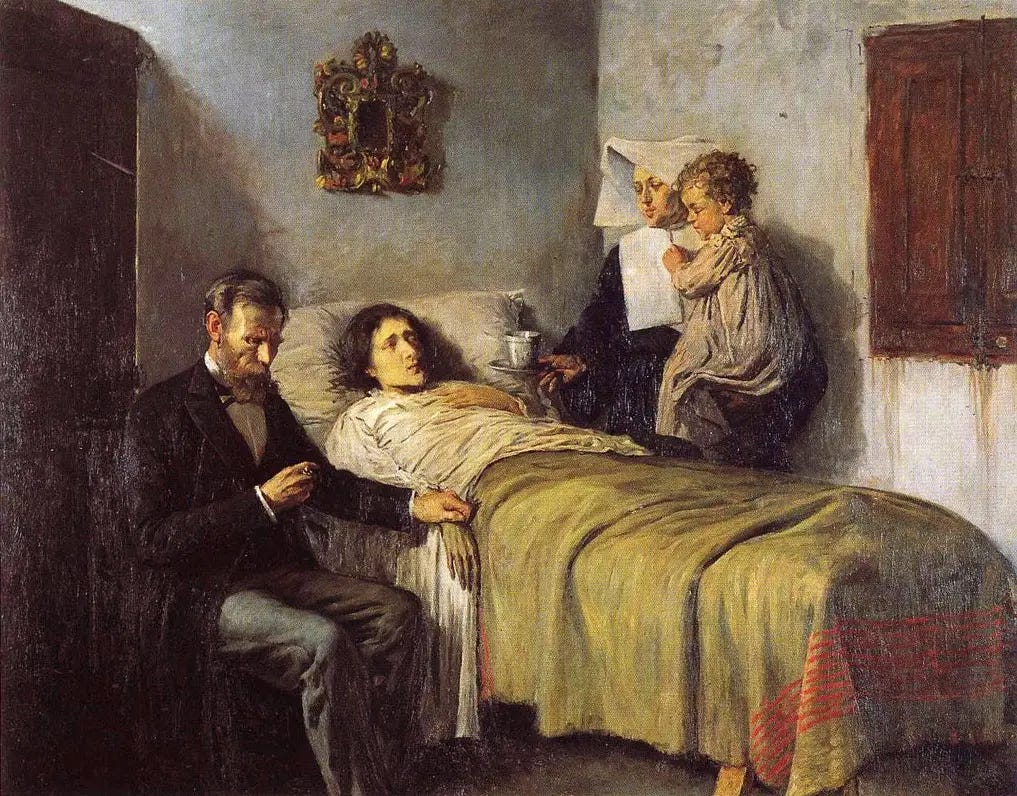
In a sense, we are moving back to older forms of mutual aid organizations from the pre-modern world that operate in a mode of community insurance (cancelation insurance?) in the best of times, and disaster relief in the worst of times. But here there is also a challenge because insurance and disaster relief don't pay out until catastrophe becomes imminent. Certainly, in places like South Africa, the work of AfriForum is a sterling model of how mutual aid and lobbying can be organized inside a metastasizing collapse. Still, this is harder to manage in America and Europe where the decline is slower and harder to perceive.
I believe that the road to mutual support networks will take a different route in more developed countries, as a product of individual efforts to move away from the mainstream and become more independent. Organization in these capacities naturally occurs at the local level and then becomes organized more broadly at a national and international scale.
The key here is to start understanding your permanent wealth as part of an extended trust network. Understanding wealth as part of a community is common throughout history, but this is something that I didn't understand fully until my 30s and not entirely until I started a family. You are only as secure as your support network is strong, and you can't count on friends who are just waiting to disown you for your political beliefs. Certainly, there is a natural role for developing trust networks IRL in local communities, but you can even see efforts to support these activities online such as in the EXIT group (among many more).
People should experiment with creating mutual aid organizations. Often we underestimate the importance of just knowing that people are standing behind you and are invested in your success. And most of the time, the actual contribution of mutual aid doesn't need to be very big. But this is the first step to escaping modernity’s bottleneck, picking ourselves up off the ground, again and again for which we will naturally require the support of others.
2. The Hip Bones - Homeschooling, Quality of Life, Family Support
Moving laterally, we arrive at the hips, the gateway of new generations, the stabilizing organs of the body politic. The hip bones comprise the organizations that support basic education, family life, and community. These are the institutions that provide life its quality, the luster contained in the quiet moments, the familiarity of friends and family. These are also the groups that enforce basic standards of behavior when appropriate. As I mentioned in a recent talk, the core of any dissident community activity must be aspiration. We must become a reflection of the better lives people only vaguely remember from the old world.
People say "We can't have nice things anymore". Yet we need to. Speaking from the stories I heard from older family members, the preservation of microscopic order is essential in times of hardship; the tradition of sitting down to dinner even if food is scarce, the imperative to raise children with pride, the obligation to celebrate small successes even if the macrocosmic order is crumbling. These small moments are where people remember their dignity. And these moments exist in many places from the ordinary ceremonies of friends and family to the education of children, to the folk culture, music, and art that characterize a people's existence.
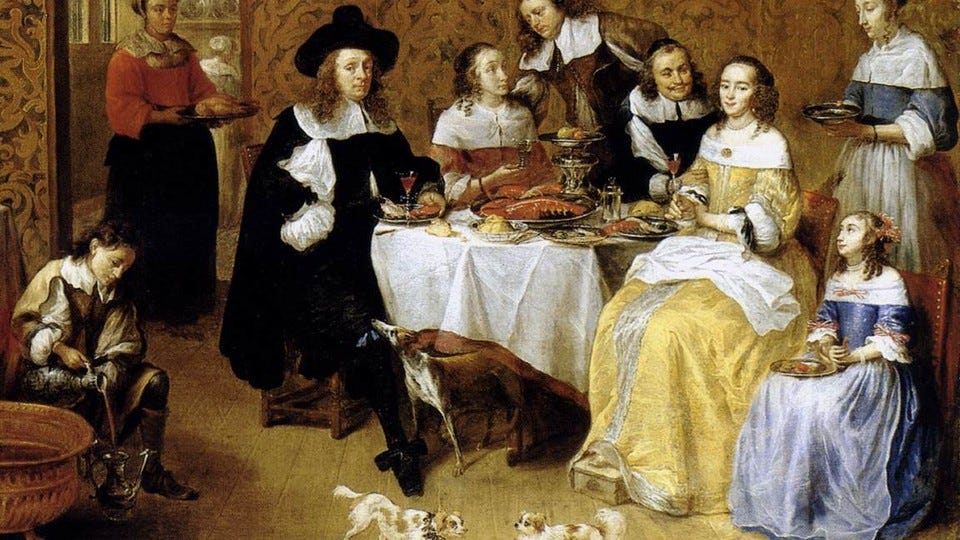
Emerging examples of these kinds of institutions seem common in 2024. Certainly, we could start with the myriad of homeschooling CoOps exploding since the end of COVID-19, of particular note should be the Christian Classical education movement. There are also examples of more focused attempts to preserve quality-of-life traditions in the form of writing, emerging from the more serious "mommy-blog" scene of the early 2010s. Often perceived as superfluous, building these types of knowledge networks is critical as the "cost of living crisis" continues to bury families in its wake.
I have also noticed an increased interest in matchmaking services, which has long been a weak point for right-wing community builders. Now this task has been taken up by a variety of private blog matchmakers, and even some more professional silicone valley types have arrived on the scene. On this last point, I would hope that continued efforts for match-making should always be focused on PERMANENTLY matching a GENERAL female customer with a PARTICULAR male prospect who has distinguished himself in other areas of excellence. Unless we can break from the dating market model popularized on the "apps", our efforts are likely going to come to nothing.
As a reader might guess, these "hip-bone" institutions have a particularly feminine flavor to them. This is probably inevitable. Certainly, you might encounter a "Karen" or two within these spaces. And probably some of my more vitalist friends would identify these groups as part of "the longhouse", not without some justification.
But perhaps these institutions represent "the longhouse" as it should have been?. Generative feminine energy needs to be harnessed and turned in some productive direction, the "Karens" need some place to use their “white-girl” magic outside of their stifling efforts in Human resources and getting people fired for offending their sensibilities.
And despite the more feminine nature of these endeavors, there are places for men to make an impact. One of the largest blind spots in our current organizational efforts is tutoring, which is an essential element of education and a role often better suited for the male disposition. Moreover, as education becomes more directed towards the adult world, men will naturally start playing a larger role.
3. The Back Bones - Mentorship, Professional Association, Sports, and Technical Groups
If the "hip bones", were essentially the "based Longhouse", the "back bones" are the pathway leading out towards the world at large. This is the element that allows the hearth, the hospital and the school room to remain refuges and not prisons. Here, in the "backbone" organizations, young men and old take on the challenges of life in a productive and focused way. The backbone represents the institutions of development, strengthening, purpose, and aspiration. Places where confidence, competency, and competition are primary and can be demonstrated. The place where young men discover a vocation and the beginnings of general camaraderie, and perform the feats that give them their spine.
Briefly, we might be able to enumerate some of these examples (probably already coming to mind for most readers): sports teams, bands, scouting troops, technical support groups, bowling leagues, professional organizations, debate societies, competitive game tournaments, and even professional organizations. Anything that requires excellence, that hones a skill, that requires, even demands, competition.
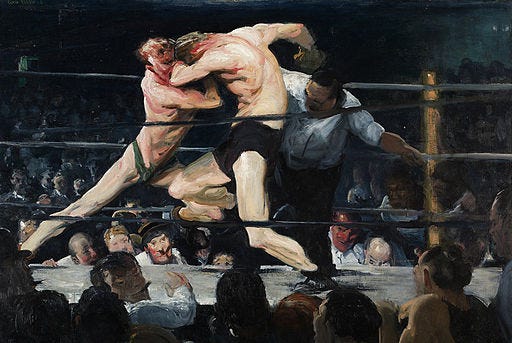
Altogether, men of my generation belong to these organizations as a matter of course, so confronting their virtual disappearance in the younger generations can be challenging, especially since these types of communities are so difficult to orchestrate online. Nevertheless, efforts are underway, and there are existing projects designed to help dissident young men build these types of spaces locally. Despite the difficulty, it is hard to overstate the importance of this task.
In the recent "coming apart" of the late 20th and early 21st centuries, mainstream society has lost these types of backbone institutions, the things that most commonly defined the public square immediately outside the home and the family, the things that defined the "Third Place", and gave virtually all men (and some women) their sense of space, quality, and purpose. In the before times, these organizations allowed men to work hard towards excellence, and be aware of their accomplishments. Now they lie in ruins.
The ultimate reason why these types of organizations disappeared is probably beyond the scope of this essay. But certainly part of the story is the general feminization of our society. The core element of all of these backbone institutions is competition. Each embodies a type of "shadow war" through which the vitality of real conflict can be grasped and harnessed for the purpose of sharpening the soul, without the deadly consequences of real war. Therefore, once these competitive organizations were absorbed into the more feminine realm, the body politic became hobbled, and the men it produced were undesirable to women.
Perhaps this is the great irony of our society's female orientation, it produces a male that no female desires. If so, the only antidote, short of explicit hardship and war, is to rediscover the places where men can prove themselves to each other. As everyone who has ever regularly done YouTube live streams knows, the most pressing question young men typically have for the older set is how to attract women. Really, it starts here. Earn the respect of other men, prove yourself to your brothers, and the mating game then begins to look very different. That's how you go from being an invisible man to being a "prospect" for women's marital ambitions.
But, aside from attracting the opposite sex, isn't being a better man good in its own right? It's the only thing that gives life meaning. It's also the only way that things can actually change. The motive force for all political reform can be found in those groups of competent men, bound together, and dedicated to a purpose. These more political cadres certainly won't include everyone in the local chess league or basketball team, but those broader groups are needed to recruit men who can think clearly, act under pressure, and most importantly be trustworthy.
Which is where our next step comes in.
4. The Chest Bones - Fraternal Organizations, Business Associations, Political Parties
Finally, we arrive at the core of the Dark Age Academy, the heart, the chest, and the will of the new civilization. Whereas the backbone was the theater of ordinary competition, the shadow war, and pseudo-politics, the "chest-bone" organizations deal with politics and struggle in their purest form: war. The chest bones comprise the fraternal orders, the proto-militaries, and the brotherhoods that organize and direct raw power for the good of the many.
It was these organizations that were the core of all societies in the pre-modern world. It is these organizations that the leaders of our modern world will do anything to suppress. And really, this is no small part of the modern problem, since there can be no effective politics and directed organization until these types of institutions start to exist, at least in nascent forms. The body of the new Dark Age Academy won't fit together otherwise.
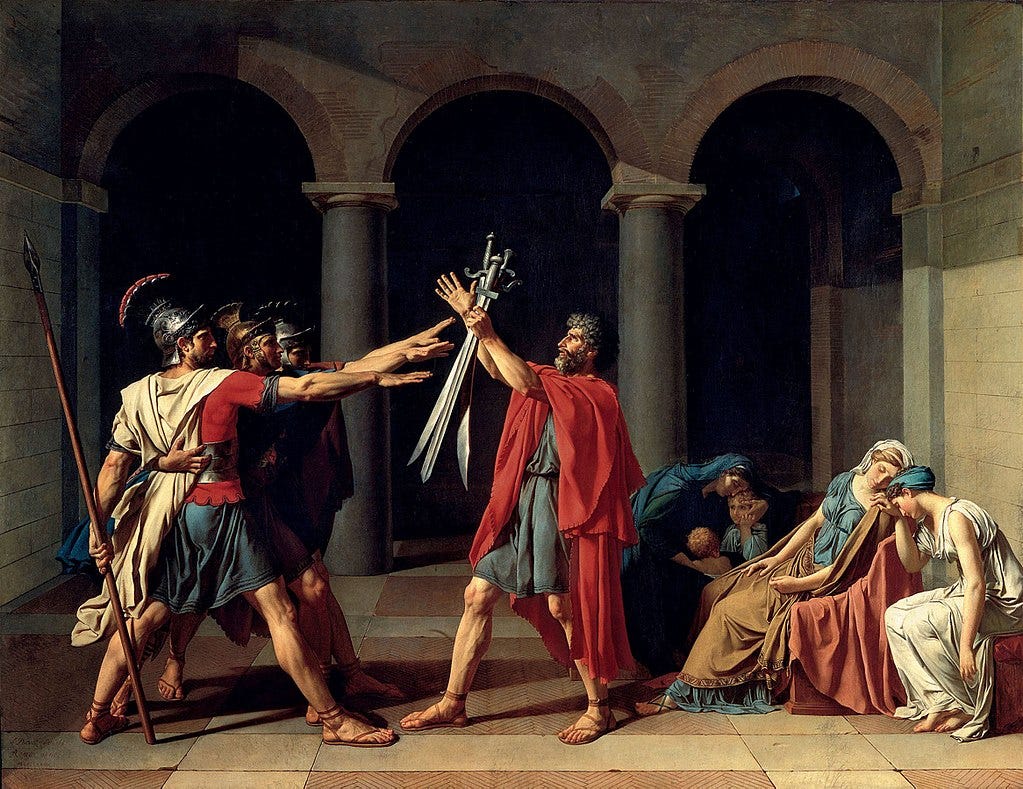
Certainly the online right talks about these types of "Männerbund" quite a bit, but taking the next step IRL is much harder.
In an ideal sense, the organizations that fall under the umbrella of the backbone would be business associations, fraternal societies built around embodying a common religious principle politically, or even explicit political parties in the more modern sense. Certainly several of the other organizations that I have already mentioned (OGC, EXIT, New Founding) could be seen as moving into this role sometime in the future. But we are a long way off from this objective, for the simple reason that any attempt to move in this direction explicitly would attract the immediate ire and scrutiny of the authorities.
The timing for taking this step must be right. But that doesn't mean we should not be trying to put together something that looks like the fraternal organizations of old. Just be careful.
First, due to its proximity to politics and the incredible scrutiny it will come under, these kinds of fraternal-political institutions must be 100% focused on quality, 100% dedicated to their mission, and 100% illegible to the mainstream which, in turn, means that they will be 100% male, with only incredibly rare exceptions.
As always, start small, prioritize trust over growing the organization, and make sure that you understand the reality of your objectives and how achievable they are in the context of modern times. Look for men who are capable, level-headed, and willing to take risks and make investments in the long term. Remember always, if you undertake an organization like this you are playing real politics. You are in the business of taking castles, not being popular; obtaining power, not feeling like you are "winning"; and establishing order, not broadcasting your grievances.
Maybe it's too early for this step. But the bone has to be connected at some stage, and the skills of manliness that it requires have to be learned.
5. The Head Bones - Arts and Letters Publications, Journals, and Intellectual Communities
Last, and certainly not least, comes the skull, the academy in our Dark Age Academy. These are the organizations that make sense of the world, the collectives that reach for the higher things, that try to capture the good, the beautiful, and most importantly, the true. The “head bones” encompass all those endeavors that try to satisfy the mind and the soul outside the need for direct power. These are the academic publications that try to determine what is truly happening in our world, the poetry and fiction societies that attempt to capture the spirit of the age, and even the organizations that attempt to refine and explore religious practice within the context of a particular tradition.
Altogether, in the information age, these institutions’ development is paradoxically more advanced than the other bones we have examined so far. Whereas typically the "head" of a society would be built on top of the chest. Now, due to the presence of the internet and growing social control on the part of Western governments, the head precedes the chest, with new intellectual movements, art collectives, and publications. I could list them off, but they are almost too numerous these days. Every day on Twitter/X, I find another great artist or creator making headway in a new dissident mode. Perhaps these are just the circles that I run in, but even with the social media throttling, there is almost too much new content.

Perhaps this is a good enough starting point to rebuild the rest of our body? If so it would seem a little backward historically, since, more commonly, academic practice emerges from the communications of existing fraternal orders. In reverse the process feels a bit like Swift's Laputians building the house from the top down like Spiders. And I understand the criticism that modern dissidents spend altogether too much time with words and ideas when there is real work to be done.
But the work done in artistic and intellectual spaces is valuable. Ultimately, a genuinely religious sensibility will grow from the aesthetic foundations explored in these more esoteric organizations. Developments happen slowly and imperceptibly but new understandings of beauty and goodness more in line with human thriving eventually take root and bear fruit, acorns of the culture war.
And ultimately, the Hegelians were correct about one thing, there is an end to the development of ideas in history. It's not just endless and useless blather. Conversations have a point, a ground level where people understand the differences in perspective and "move on" to new and better ideas.
For these reasons, I think the gradual decline of YouTube and streaming platforms on the right is ultimately a beneficial development, even though this was a medium in which I thrived.
On YouTube, during the "blood-sports era", drama always played an outsized role in the product. The endless back and forth of responses meant that, for purposes of the algorithm, conversations never really changed significantly over time. Point begot counter-point, video responses transformed into debates, and even if you lost one week, you could come back the next and win the day with the right optics.
But in 2024, as politics have gotten more serious, less part of an entertainment product, and more text-oriented, these cycles have become notably less prominent.
Take for instance the interminable conflict between Christian and Pagan right-wingers, originally this was the perfect example of the "chat-bot reset", the same set of points being made over and over. Still, it seems that this disagreement has been retired from prominence in 2023. We on the Christian side made our points, the pagans made theirs. And consensus emerged about where the differences and weaknesses in each side were. Therefore, what remains now is for each side to address their known issues, with the Christians trying to solve their problems with weak and effeminate leadership, and the pagans trying to solve their problems with actually existing in any real sense. Perhaps that's not progress, but it's close. And I am very glad to focus my attention on other more important questions.
Eventually, in the wake of successful intellectual communities, there emerges a kind of consensus, not stifling but helpful for allies that are trying to defend complicated ideas within the context of a more hostile mainstream. This is of course how the "Destiny-style" frame game works, by always being on the side of the experts, it can endlessly drop references to other authorities so that the system itself has to be attacked rather than the weaknesses of any individual position.
In the era of a corrupt mainstream academy, the "Destiny-style" frame game is a formula for literally arguing yourself into the role of a castrated cuckold. But with a more honest set of thinkers that are trustworthy and aligned to the well-being of the community, the approach is just time efficient. Once these types of broad consensuses emerge there is a way to be "on the right side of an issue" and therefore outsource your intellectual efforts to others whose judgment you trust, so you can focus on other issues more relevant to your vocation.
But even setting aside these more discourse-focused points, the purpose of these institutions is just to make sense of the world that we live in, so that we can be comfortable in our skins and uncomfortable in the face of the poisonous culture pushed on us constantly. This is how the new men of the Dark Age Academy become both wise and trustworthy. This is how we broadcast to others that special quality St Paul described as being "in the world, but not of it".
But this is all I can write about this effort for now.
The various dead institutions from the old world, be they legs, hips, spine, chest, or skull, lay before us. Perhaps in a worse state than we expected? We certainly aren't as far advanced as we should be.
In the present year, we are still just looking at dead bones, and imagining how they might be assembled. And to be certain, what I have provided the reader here is much more an aspirational vision than a progress report. But it is, nevertheless, a start.
One of the chief obstacles to community building is coming up with something to do. There are caveats and challenges, and things are never as simple in reality as they are on paper. But that is simply the challenge we have to confront going forward. It's time to pick up the discarded things as they lay, start assembling what we have, and then, with the grace of God, see what comes to life.